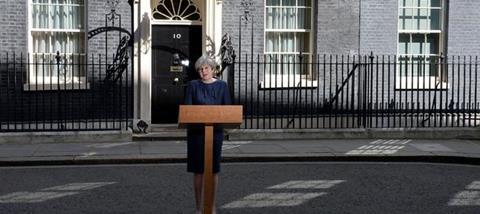
Two polls out this week show the Conservatives 21% ahead of Labour in the polls.
A convincing win would strengthen the Government’s negotiating hand in the minds of European leaders who will determine how generous they are in the terms they offer the UK post Brexit. Theresa May will obviously also expect the outcome to give her another five years in power despite the many challenges facing the Government on economic and social policies.
Technically, the Fixed Term Parliaments Act 2011 is a hurdle Mrs May must overcome before she can call the June election. There cannot be an election unless she obtains a two-thirds majority of the whole House but Jeremy Corbyn is keen to give her that majority and Labour have been preparing for an election for months. Most of his parliamentary party want it too, despite the likelihood of defeat, because it could strengthen the possibility of ousting their leader.
Inevitably the Conservatives will fight the election on a Brexit platform, despite the fact that like Mrs May some of them fought the referendum as Remainers. They will argue that they are the only party that will reclaim control over our national borders, cut the number of immigrants and restore sovereignty to the Westminster Parliament. The Prime Minister is also likely to pitch for the alienated voters who backed Brexit because they felt marginalised and forgotten by those in power.
In stark contrast I expect Labour to fight the election on the grounds that the Tories are wrecking Britain with its austerity measures. They will campaign on restoring the NHS, rescuing social care for the elderly, properly funding our schools and blocking the creation of more grammar schools. They will ask what sort of Britain the voters want and promise to undo the Government’s benefit cuts, raise the National Living wage to £10 per hour, raise the top rate of income tax to 50p in the pound and reverse Conservative cuts to Inheritance tax.
The Liberal Democrats will make the case for the softest Brexit
As the most pro-EU party the Liberal Democrats will make the case for the softest Brexit that gives us continuing access to the EU single market of 500 million people. They are also likely to remind us of the original vision for the EU as a vehicle for peacefully resolving differences between member states rather than the bloody history of 44 million Europeans killed in two 20th century wars. Their manifesto will point to the many challenges we share with our neighbours from refugees, people smuggling, international crime and terrorism, Russian expansionism and global warming.
The election will be welcomed by the Scottish Nationalists who will campaign for an overwhelming majority north of the border as grounds for the second referendum on independence that they want. In the same way the parties in Northern Ireland will see this election as an opportunity to postpone their constitutional crisis. Presumably UKIP, which no longer has any MPs, will oppose any compromises on Brexit and see it as an opportunity for revenge against Douglas Carswell who now sits at Westminster as an Independent.
What part does ‘loving our neighbours’ play in UK government and politics post Brexit?
Readers of Premier Christianity will hopefully be praying for more evidence of Godly values in the election campaign and its outcome. If last year’s referendum campaign is any guide we will be disappointed but perhaps it is up to us to ask local candidates where they stand on the moral and spiritual issues that concern us.
Since the election is supposed to be about ending our relationship with the EU we might ask them how they will balance self-interest with active cooperation with our neighbours. What part does ‘loving our neighbours’ play in UK government and politics post Brexit?
As we depend on EU migrants in our NHS, agriculture and many sectors of British industry and commerce, how will ministers allow for that in their negotiation strategy so that people made in the image of God will not be treated as mere pawns?
Will truth be a victim in this election as it was in both sides of the referendum campaign? That campaign divided Britain deeply, will this election help to heal those divisions and unite the nation. Will campaigns for a strong, independent Britain be balanced by a vision of servant-hood, open to welcoming and caring for refugees and other nations struggling with extreme poverty, famine and inadequate health and education services?
We pray that God’s will be done on earth as it is in heaven. Is that our prayer for this election and its outcome?
Click here to request a free copy of Premier Christianity magazine



























